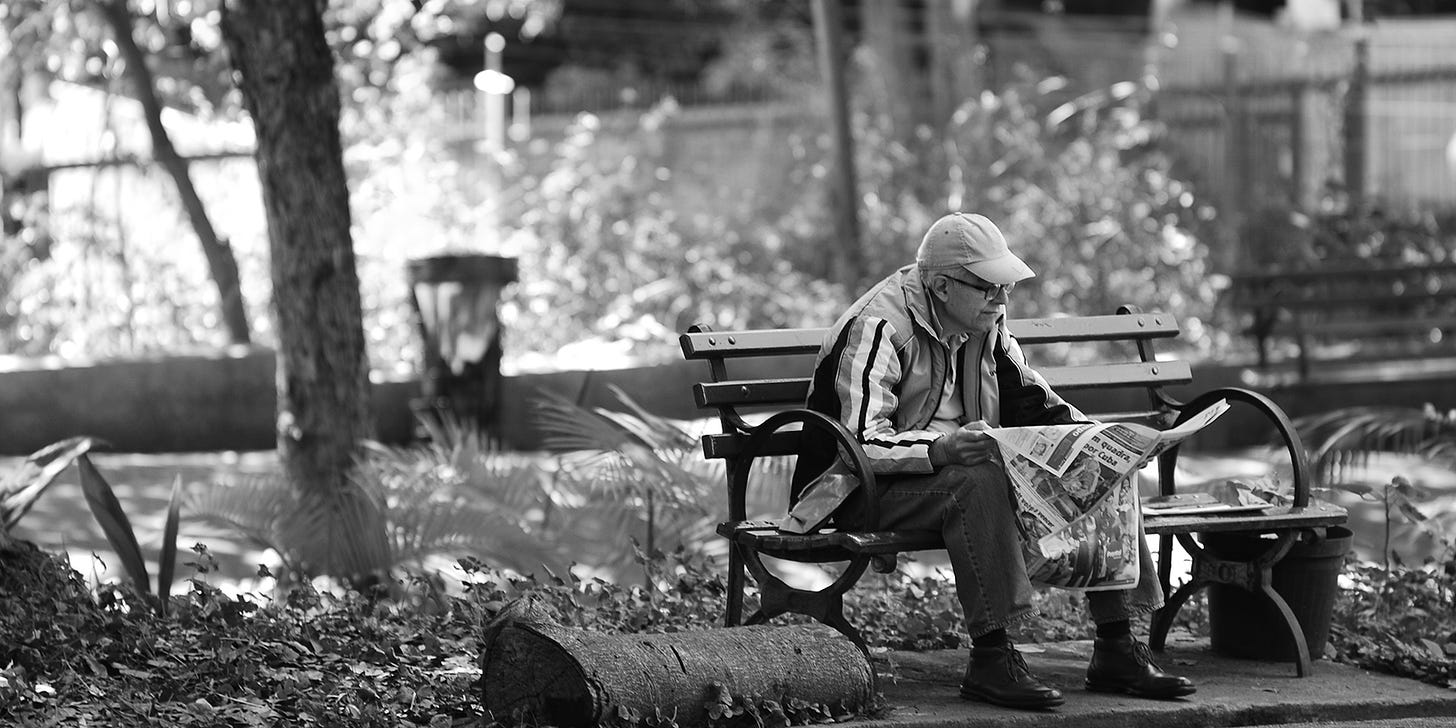Coffee News Roundup: Week Ending April 29th
This week, the Roundup tries to make sense of Nespresso becoming B Corp certified, and all that implies. Also more Starbucks union news, and your coffee habit might just be that—a habit.
It’s another Coffee News Roundup, which this week focuses mainly on one news item.
You’ll see why.
Nespresso Achieves B Corp Certification - Via Global Coffee Report
Independent green and ethical certifications have long been a way for companies to show consumers that they’re worthy, doing their best, really trying quite hard to be good. Examples include Fair Trade, Rainforest Alliance, Climate Neutral, or one of the most recent and well-thought-of: B Corp.
Certified B Corporations are “leaders in the global movement for an inclusive, equitable, and regenerative economy,” according to the B Corp website, and must meet “high standards of verified performance, accountability, and transparency on factors from employee benefits and charitable giving to supply chain practices and input materials”.
And this week they certified Nespresso, with a score of 84.3 (the passing grade is 80).
Nespresso, a subsidiary of Nestlé (!!!), produces 14 billion coffee pods each year, and “has scale, experience and buying power that no other premium coffee company can match,” according to the Guardian. It had sales of $7 billion in 2021, dominated by the pods and accompanying brewing machines.
How many of these pods are recycled? 32%, Nespresso says—oh, but “90% of Nespresso consumers worldwide have access to a convenient used capsule recycling solution.” That’s good then, we know how well that goes. Not to mention the machines themselves, of which dozens of models exist and millions have been sold—in the UK alone, 4.8 million people own a Nespresso machine. How many of them are recycled when they stop working?
The company (and B Corp) also point to all the good stuff Nespresso does at origin, like its definitely-not-a-marketing-ploy Reviving Origins, on which it will spend $10 million over five years to “bring back lost coffees” while it paid George Clooney $40 million to be the face of the brand. Or its in-house sourcing program, the Nespresso AAA Sustainable Quality Program that it “designed in partnership with the Rainforest Alliance” according to Global Coffee Report (although it’s not certified by RA or anyone else).
It’s this supply chain within which Channel 4’s Dispatches program found child labour back in 2020, which Nespresso has “acknowledged” according to B Corp, “and also implemented prevention practices”. Pretty great that you can have documented and acknowledged instances of child labour within your supply chain and still get certified.
One of B Corp’s main selling points (and what makes it come across as more ethical than many other third party certifications) is that applicants “make a legal commitment by changing their corporate governance structure to be accountable to all stakeholders, not just shareholders”. Which sounds good, but this article in the Conversation points out that such promises aren’t legally enforceable, and that “neither the board nor the corporation are liable for damages if a company fails to meet them.”
This means that Nespresso, a multi-billion-dollar subsidiary of publicly-traded Nestlé, gets all the kudos (and fawning media coverage) for “achieving” B Corp status but doesn’t necessarily have to follow through. And what did this achievement cost? Neither entity will say, but with Nespresso’s $7 billion revenue it moves past $50,000 per year and into “please contact us for a quote” territory.
This is a classic example of coffeewashing. The bottom line is that this certification links Nespresso favourably with other, smaller coffee companies that have also been B Corp certified, giving a giant corporation with an iffy track record credibility in the eyes of ethically-minded consumers and specialty coffee drinkers alike. As this excellent Boss Barista article points out, “[consumers are] supposed to see a symbol printed on a bag or label and accept it at face value, without digging any deeper.”
That’s what the company is banking on. The last line of the Global Coffee Report story on the announcement sums it up: “Nespresso will add the B Corp logo to Nespresso products and communications to help spread the word about the movement, educate consumers, and help them make more sustainable choices in its purchasing decisions.”
More Headlines
USDA Report: Coffee Consumption Booming in China as Domestic Production Slows
Probat Introduces Electric P05 E Machine to the US
Fire Damages Regalia Roasting Collective in New York, GoFundMe Launched
Olam’s Ofi Acquiring Canadian Roaster Club Coffee for $117 Million
The Week In Coffee Unionizing
Another busy week of unionizing news:
13 Starbucks stores voted to unionize in the past week, bringing the total to 43 across the country.
The corporate behemoth has complained to the National Labor Relations Board about what it calls “agents” of the union harassing non-supportive Starbucks customers and baristas. Specifically, the complaint accuses striking baristas of “yelling profanities and obscenities at partners and/or customers, and/or impacting cars with objects such as a picket sign as they attempted to enter or leave.”
For the first time, a non-Workers United union is trying to organize Starbucks. United Food and Commercial Workers Local 1473 is representing three locations in Wisconsin, and a lot of people aren’t happy about it.
Away from Starbucks, workers at 1369 Coffee in Cambridge, Massachusetts have filed to form a union. “A partnership among us will strengthen the business while better supporting the staff,” the announcement letter states, “for it is through collaboration, not dictation, that we excel.”
Is Coffee Good For You?
Do you need your morning coffee? Like, really need it to function? Or is it just something you do because you’ve done it every day for years?
Researchers at University of Southern California wanted to examine the causes of human behaviour, and whether we’re able to self-assess those causes, and so they looked at the coffee consumption of students because why not.
Students were asked what drove their coffee drinking, with respondents replying that “fatigue was about twice as important as habit.” Those participants were then tracked over the next week, with their drinking and tiredness logged every two hours.
“We found that the participants strongly overestimated the effect of tiredness on their coffee consumption and underestimated the effect of habit,” said study author Asaf Mazar.
So your morning coffee might be more about habit than the need to wake up, but that doesn’t necessarily mean it’s a bad thing. “Habits can keep us repeating unwanted behaviors, but they can also keep us on track in maintaining desirable ones,” Mazar said, citing examples like exercising or recycling.
What To Read
A Brief History Of Coffee Unions by Jenn Chen
A Fair Deal for Coffee Farmers Starts with the Democratization of Data by Cory Gilman
Until next week, drink good coffee.






